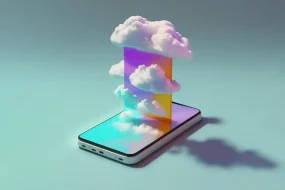
The digital realm is on the brink of a monumental transformation, driven by the rise of quantum-enabled features. Quantum technology, once the stuff of science fiction, is now a reality that is reshaping the way we interact with the digital world. In this comprehensive exploration, we will delve into the profound impact of quantum-enabled features, shedding light on their applications and the technology behind them.
Quantum Mechanics: A Brief Primer
Before we delve into the quantum-enabled features, let’s start with the basics. Quantum mechanics, a fundamental theory in physics, describes the behavior of matter and energy on a subatomic scale. It introduces concepts such as superposition and entanglement, which are the building blocks of quantum technology.
Quantum Computing: Unleashing Unprecedented Processing Power
Quantum computing, a prominent application of quantum technology, promises to revolutionize various industries. Unlike classical computers that use bits for processing, quantum computers utilize qubits, allowing them to perform complex calculations at incomprehensible speeds. From cryptography to drug discovery, quantum computing is set to optimize tasks that were once deemed intractable.
Quantum Cryptography: A New Era of Security
In the age of cyber threats, quantum cryptography is emerging as a savior. Traditional encryption methods could potentially be broken by quantum computers. Quantum cryptography, on the other hand, uses the principles of quantum mechanics to ensure unbreakable security. It’s not just about protecting data; it’s about redefining the concept of digital trust.
Quantum Sensing: Redefining Precision and Accuracy
Quantum sensors are pushing the boundaries of measurement accuracy. They leverage quantum properties to detect minuscule changes in the environment, whether it’s for navigation, medical diagnostics, or monitoring geological shifts. The precision and sensitivity they offer are unparalleled.
Quantum Communication: Instantaneous, Unhackable Connections
Traditional communication systems are vulnerable to interception. Quantum communication, on the contrary, offers unhackable transmission of information. Thanks to quantum entanglement, any attempt to intercept data would immediately alter the state of the quantum particles involved, alerting both parties to the breach.
Quantum AI: Enhancing Machine Learning
Artificial intelligence is taking a quantum leap forward. Quantum AI combines the power of quantum computing with machine learning, allowing for faster and more accurate data analysis. This synergy has the potential to revolutionize healthcare, finance, and countless other sectors.
Quantum Sensors in Healthcare: A Revolution in Diagnostics
In the medical field, quantum sensors are transforming diagnostic processes. They can detect diseases at an earlier stage with unparalleled accuracy, potentially saving countless lives. From cancer detection to brain imaging, the possibilities are vast.
Quantum Simulations: Unlocking the Mysteries of the Universe
Quantum simulations enable us to explore phenomena that were previously beyond our reach. From simulating the behavior of complex molecules to understanding the cosmos, quantum simulations are at the forefront of scientific discovery.
Quantum Internet: A Global Quantum Network
The dream of a quantum internet is becoming a reality. It would be a network where data is transmitted instantaneously and securely using quantum entanglement. The implications for global communication and collaboration are enormous.
Final Words
The rise of quantum-enabled features is not just a technological shift; it’s a paradigm change. It transcends the boundaries of classical computing, offering unparalleled opportunities in computation, communication, and beyond. The era of quantum technology has arrived, and it’s reshaping our digital landscape with limitless possibilities.
Commonly Asked Questions
Q1: What is quantum technology?
A1: Quantum technology is an emerging field that harnesses the principles of quantum mechanics to create new technologies with profound applications in computing, communication, sensing, and more.
Q2: How does quantum computing differ from classical computing?
A2: Quantum computing uses qubits, which can exist in a superposition of states, enabling it to perform complex calculations exponentially faster than classical computers.
Q3: Is quantum cryptography truly unbreakable?
A3: Yes, quantum cryptography is considered unbreakable due to its reliance on the fundamental principles of quantum mechanics, such as the impossibility of measuring a quantum state without disturbing it.
Q4: What are the practical applications of quantum sensors?
A4: Quantum sensors have a wide range of applications, including precision measurements in navigation, medical diagnostics, environmental monitoring, and more.
Q5: How will quantum technology impact our daily lives?
A5: Quantum technology will lead to advancements in various fields, from healthcare and communication to scientific discovery, ultimately improving the quality of life for many.
Advertisement








